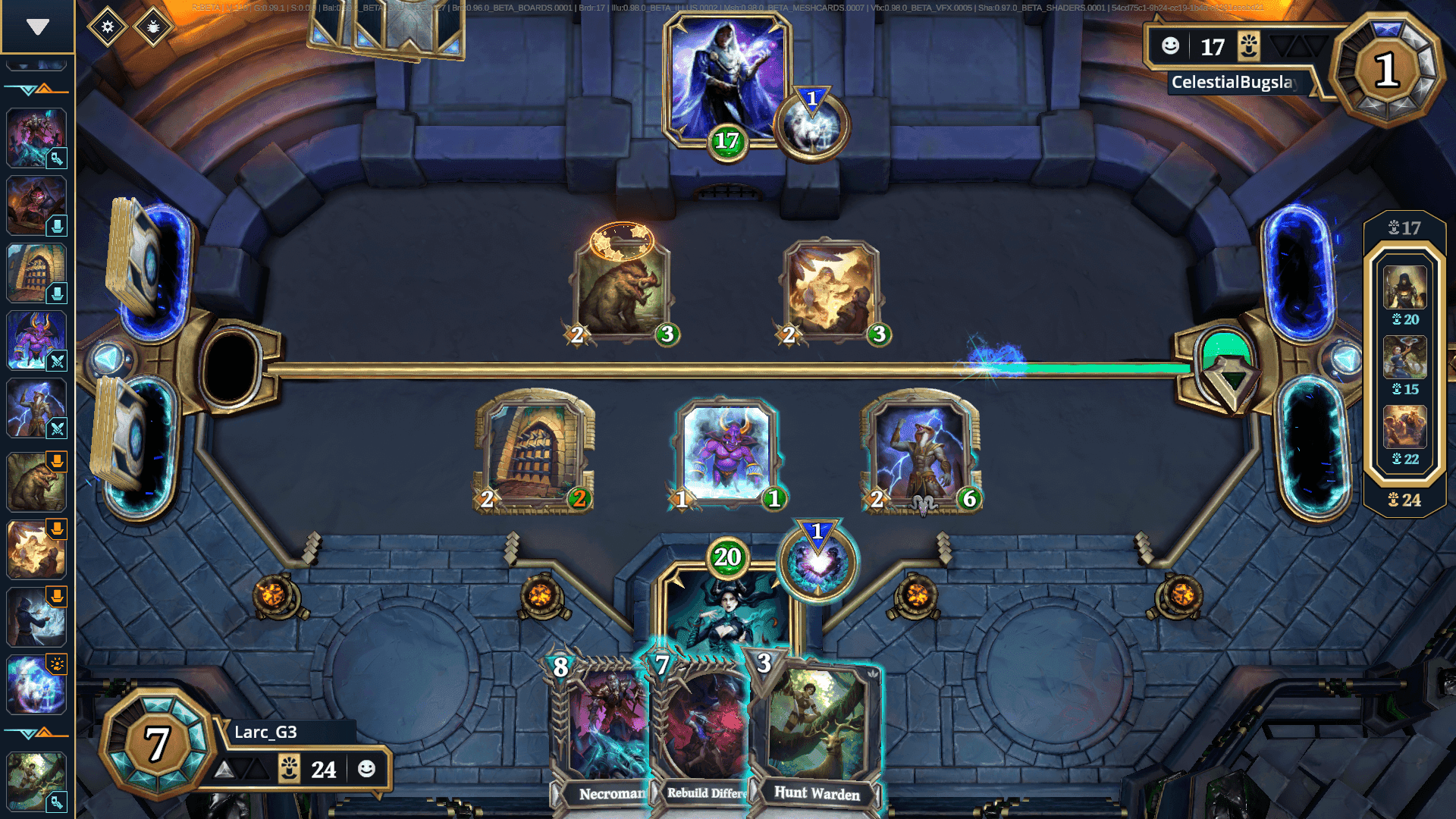Introduction
Don’t you wish you could sell all the cards you bought on Hearthstone when you stopped playing? Or sold one of the legendary cards in Legends of Runeterra instead of disenchanting them for peanuts? Gods Unchained is one of the original and oldest web3 games to exist, and serves the card genre right by giving players a quality game to enjoy and keep coming back to.
Gods Unchained is a free-to-play trading card game where players compete in epic duels using fantasy cards. The game provides a dynamic and competitive experience with a strong focus on strategy. Gods Unchained provides real ownership over in-game assets by turning them into NFTs, allowing players to effectively trade their items for real money.
Gameplay
Gods Unchained draws several mechanisms from Magic: The Gathering in particular, which is understandable considering Chris Clay’s leadership role, the former game director of Magic: The Gathering Arena. Players need to select one of six available gods, and fill out their 30-card deck accordingly depending on their choice for synergy.
Similar to Hearthstone, but not quite, each god has a corresponding list of special powers to choose from, four to be exact. Each game you are allowed to choose only one, the most suitable to counter your opponent’s style of play in your opinion. It comes at a mana cost so keep that in mind as well in terms of how much value it can bring you.
Mulligan
At the start of the game, you are prompted 5 times with 3 cards to choose one to form your starting hand. You gain one mana each round up to the 5th round, where the 6th and 7th mana slots take 2 turns, 8th mana slot takes 3 turns, and the 9th and final mana slot takes 4 turns.
However, there are 3 mana pip slots available to each player, where you can use a “bag of tricks” to get yourself an extra mana point to play higher value cards.

Favor
As your match progresses, players accumulate Favor points through completing certain actions. You gain Favor passively through completing turns, and the longer the game goes, the faster you stack them. Other actions that help you gather them quicker are attacking your opponent’s god directly, one of your cards survives an attack and kills the opposing character in return, and so on.

These are redeemable points for cards belonging to all six gods rather than being restricted to the one you chose to build your deck around, Favor points disappear at the end of every match, so they aren’t accumulated or stored in any way outside of the ongoing game.
Review
Gods Unchained has its strengths, no doubt, especially with recent updates. The game runs much smoother now, and the annoying connectivity issues that used to drag the experience down seem to be a thing of the past. When you dive into a match now, it’s easier to focus on strategy without being interrupted by lag or crashes, which is a huge win for players who want to just get into the action.
That said, the game’s mechanics have stayed pretty much the same. While the core gameplay is solid and still enjoyable, there hasn't been much innovation lately. The recent animation updates are nice, but they’re so subtle that you might not even notice unless you're really paying attention. I’d love to see some new features or twists to keep the gameplay feeling fresh. After all, there’s only so much you can do with the same mechanics before things start to feel a little stagnant.
If we’re talking about player activity, there was a spike in DAU when Gods Unchained launched on mobile, which was a big win for the game. However, fast-forward to now, and finding matches can be a bit of a chore. Casual mode? You’re looking at about 8-10 minutes before you even get to a match. For Ranked, it’s a bit quicker, around 3-5 minutes, but sometimes I just want to get into the action and not wait forever.
On the plus side, Gods Unchained has been running regular in-game events, which is a great way to mix things up. These events tend to offer much better rewards than regular Ranked play, making them worth participating in. However, they do come with a catch: some events require a specific rank or tier to join, and there are entry fees involved. That being said, the devs are doing their best to keep the game exciting with consistent balance updates, so the meta doesn’t get stale each season. The introduction of the Season 1 Battle Pass is also a nice touch, giving players more rewards to unlock, though if you want the premium stuff, you’ll need to invest some $GODS tokens. Overall, the game is still solid, but the waiting times for matches and balance issues could still use some work.



